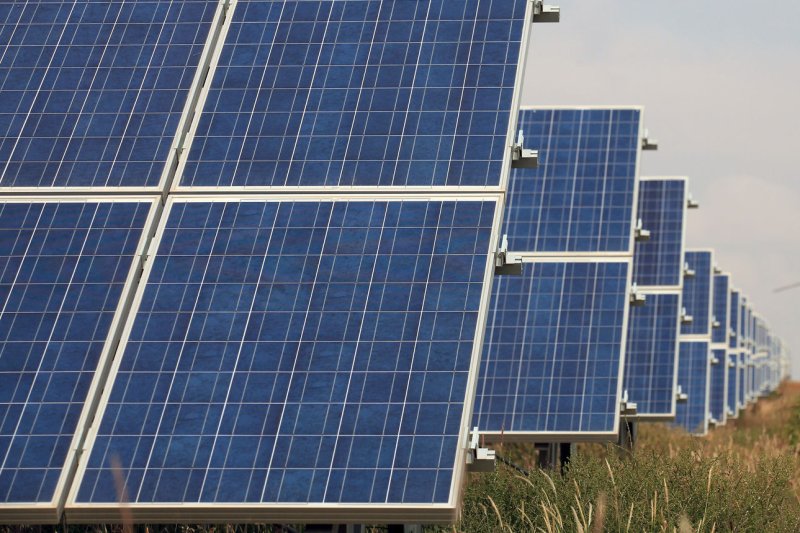U.S. solar industry leaders said tariffs aren't the answer to a market flooded with cheap foreign components. File photo by Stephen Shaver/UPI. |
License Photo
Nov. 1 (UPI) -- The Trump administration is called on to embrace free-markets over protectionism in order to support the blossoming solar power sector, industry leaders said.
The U.S. International Trade Commission delivered three separate sets of recommendations to President Donald Trump designed to curb imports of solar components, ranging from quotas to a tariff on imports of 35 percent.
In October, the Natural Resources Defense Council said some components of the renewable energy sector have accelerated faster than the government estimated. Renewable energy made up 14 percent of all U.S. electricity sales last year and in September, the Energy Department said a solar power initiative enacted by former President Barack Obama reached a goal for cost competitiveness three years early.
The commission took up the case amid complaints that cheap parts from Asia made the U.S. sector less competitive. Suniva, based in the United States, and SolarWorld, whose parent is in Germany, said their tariff petition would lead to more jobs in solar industry in the United States. According to an economic analysis done by Mayer Brown, a law firm representing the two companies, a tariff on solar cell imports could generate as many as 144,300 new jobs.
In April, Suniva, a Chinese-owned, Atlanta-based company, filed for bankruptcy.
Abigail Ross Hopper, the president and CEO of the Solar Energy Industries Association, said the trade commission's decision was balanced as "in no case" did it recommend anything "close to what the petitioners asked for." That said, Hopper, who led the Bureau of Ocean Energy Management in the Obama administration, said she was encouraged that commissioners were considering steps apart from tariffs.
Tom Werner, the CEO of SunPower, said when stiff tariffs were placed on steel, the result was heavy job and wage losses for U.S. workers.
"Ultimately, the tariffs were removed early, after less than two years," he said in a statement. "History must be a guide for us now."
The European Union in 2013 imposed a duty of 67.9 percent to Chinese solar panel exporters who didn't cooperate with an investigation into allegations the panels were sold to European countries at below market cost.















